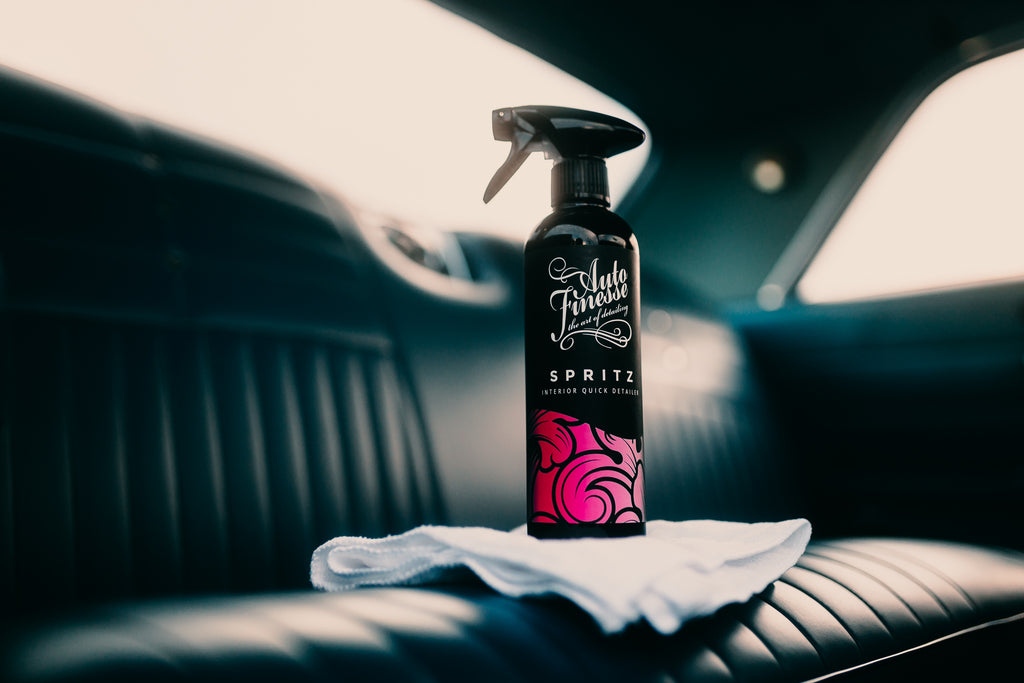How to Set Up a Successful Detailing Business in the UK

Starting your own car detailing business in the UK is an exciting and rewarding venture, especially with the growing interest in car care and presentation. Whether you aim to provide mobile services or establish a fixed location, success depends on careful planning and execution. This guide will help you navigate the process of starting your detailing business, covering everything from branding and setup to marketing and scaling.
1. Defining Your Brand and Business Name
Before diving into the technical aspects of detailing, think about your brand. Your business name, logo, and brand identity are vital in making a memorable first impression. Choose a name that reflects professionalism, quality, and the services you offer. For example, "Precision Detailing" communicates a clear message of meticulous attention to detail.
Once you have a name, ensure it's available by checking domain names, social media handles, and trademarks. Your brand identity should also extend to a logo and colour scheme that align with the image you want to project. A clean, modern look will convey professionalism and trustworthiness to your future clients.
2. Business Setup and Legal Requirements
Setting up a detailing business requires meeting a few legal obligations in the UK. First, you’ll need to register your business with HMRC, either as a sole trader or a limited company, depending on your circumstances. A sole trader setup is simpler but offers less protection than a limited company, which provides limited liability.
Next, you'll need to obtain appropriate insurance. At a minimum, consider public liability insurance, which covers you if a customer’s vehicle is damaged while in your care. If you’re hiring staff, employer’s liability insurance is a legal requirement. Additionally, you may want to invest in motor trade insurance to protect yourself when moving or working on customers’ vehicles.
Don’t forget the importance of accounting from day one. Many new businesses fail due to poor financial management, so set up a system to track income, expenses, and taxes. You can use accounting software such as QuickBooks or Xero, or hire a bookkeeper.
3. Finding the Right Van and Equipment
If you're setting up a mobile detailing business, your van is crucial. Choose a van that suits your needs and allows you to carry all the necessary equipment. Popular choices include models like the Ford Transit Custom or Volkswagen Transporter, which offer ample space, reliability, and a professional image.
When it comes to purchasing or leasing a van, weigh up the pros and cons. Buying outright gives you ownership, but leasing may offer better cash flow management, especially when starting out.
In terms of equipment, investing in high-quality tools and products will set you apart. Essentials include a pressure washer, wet/dry vacuum, polishers, a variety of brushes, microfibre towels, and applicators. Don’t overlook the importance of top-quality products, such as the Auto Finesse range, which will help you achieve superior results and build trust with your clients.
4. Training and Practical Experience
Detailing is a skill-based profession, so formal training and hands-on experience are crucial for your success. There are numerous detailing courses available in the UK that cover everything from basic cleaning techniques to advanced paint correction. A recognised training provider will help you master the skills and techniques you’ll need to deliver consistent, professional results.
While training is essential, so too is practice. Before taking on paying clients, practice on friends' or family members' cars to build confidence and refine your process. This will also allow you to test different products and tools, perfect your workflow, and identify any gaps in your setup.
5. Choosing Your Services and Pricing Strategy
Detailing services can range from basic exterior washes to comprehensive interior and exterior restorations. Offering a variety of packages will help you appeal to a wider audience. Some key services to consider include:
- Exterior Detailing: Washing, decontamination, waxing, and polishing.
- Interior Detailing: Vacuuming, fabric and leather cleaning, and odour removal.
- Paint Correction: Removing swirls, scratches, and imperfections in the paintwork.
- Ceramic Coating: Applying a long-lasting protective layer to the vehicle’s exterior.
Setting your prices can be tricky. Research the market in your area and price your services competitively, while also reflecting the quality of work you deliver. Remember to factor in your overheads—such as fuel, products, and insurance—so that your business remains profitable.
6. Marketing Your Detailing Business
Once your business is set up, you'll need a solid marketing plan to attract clients. Start by setting up a professional website that clearly lists your services, pricing, and contact information. Investing in high-quality photography of your work will help showcase your skills. Client testimonials and reviews can also help build credibility.
Social media is a powerful tool for marketing detailing services. Instagram is particularly popular in the car detailing community due to its visual nature. Regularly post before-and-after shots of your work, as well as tips and tricks for car care. Use relevant hashtags, such as #CardetailingUK, to reach potential customers.
Facebook is another great platform to advertise your business, with local groups and Facebook Marketplace offering ways to connect with car enthusiasts in your area. You can also run targeted ads to reach potential clients within your locality.
Word-of-mouth referrals remain one of the most effective marketing tools. Encourage satisfied clients to spread the word and leave online reviews. You can offer referral discounts to incentivise this.
7. Managing Your Day-to-Day Operations
Managing your time and resources effectively is essential to keeping your business running smoothly. Invest in software that helps you manage bookings, such as Square or SimplyBook. Keep on top of your stock of products and always plan ahead to ensure you never run out of essential supplies.
When working on customer cars, maintaining a professional image is key. Keep your van and equipment clean, arrive on time, and present yourself in a professional manner. Consistency in both your results and professionalism will build your reputation and ensure repeat business.
8. Upselling and Growing Your Business
Once you’ve established your detailing business and have a steady stream of clients, look for ways to grow. Upselling additional services is an excellent way to increase revenue. For example, if a client has booked an exterior wash, you could offer to add a wax or ceramic coating for a discounted price.
Another growth strategy is to expand your services to include fleet detailing or partnerships with local dealerships or luxury car hire companies. Offering maintenance packages for regular clients can also provide a more predictable income stream.
As your business grows, you may want to hire staff to take on more work. Start with an assistant who can help with the basics, freeing you up to focus on more complex tasks. Proper training and maintaining your brand standards will be crucial to ensuring your business continues to deliver the high-quality results clients expect.
Conclusion
Setting up a successful detailing business in the UK requires more than just a passion for cars—it takes careful planning, quality equipment, and a strong focus on customer satisfaction. By following these steps, you’ll be well on your way to building a thriving business. Keep refining your skills, invest in the right tools and products, and always strive to exceed your customers' expectations. With hard work and dedication, your detailing business can become a well-known name in the industry, offering quality and service that clients return to time and again.






